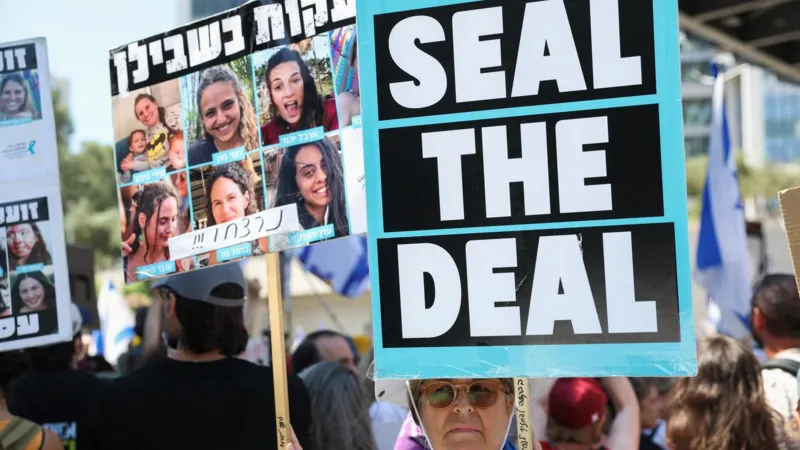In a dramatic turn of events, a general strike organized by the country’s largest trade union Histadrut has caused significant disruptions in Israel. Hundreds of thousands of people took part in the strike, which aimed to pressure the government to agree to a ceasefire and secure the release of people held hostage by Hamas in Gaza. The strike caused widespread disruptions in various sectors, such as businesses, schools and transport, before being called off by court order. The court deemed the strike to be largely political and ordered workers to return to their posts.
The strike and accompanying demonstrations reflect growing frustration among Israeli citizens, particularly those whose family members are among the hostages. The protests were further fueled by recent revelations about the fate of six hostages whose bodies were recovered on Saturday. Israeli officials have reported that the hostages were killed by Hamas, fueling public outrage.
Prime Minister Benjamin Netanyahu is facing growing criticism for his handling of the hostage situation. Critics have accused him of prioritising his political survival over resolving the crisis. Netanyahu’s right-wing coalition partners have threatened to withdraw their support if he agrees to a ceasefire deal that does not ensure the complete destruction of Hamas, a stance that complicates efforts to reach a peaceful solution.
The conflict between Israel and Hamas has been going on since October 7, when a surprise attack on southern Israel resulted in nearly 1,200 deaths and 251 hostages. The situation in Gaza is dire, with more than 40,780 deaths according to the Hamas-run health ministry.
The ceasefire efforts involve mediators from the US, Egypt and Qatar. These international players are working towards a deal that would see the release of the remaining 97 hostages, including 33 believed to be dead, in exchange for Palestinian prisoners held in Israeli jails. US President Joe Biden has expressed dissatisfaction with Netanyahu’s progress in achieving a deal, saying current efforts are inadequate. As the international community continues to push for a solution, the situation remains tense, with both domestic and international pressures influencing the direction of the talks.
